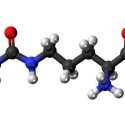13 Evidence-Based Benefits of Fenugreek
Practitioners of herbal medicine and traditional methods of healing are aware of the many health benefits of fenugreek.
This plant not only enhances the taste of food, but it can also improve your health in many ways.
If you are interested in improving your heart health, brain function, digestion or reproductive health, then this small but powerful plant may be what you are looking for.
We explore all the many benefits of this important and ancient herb in our comprehensive guide to fenugreek.
What is Fenugreek?
Humans have used fenugreek for more than six thousand years.
This leafy, green legume is common in Africa, as well as southern and central Asia.
Its leaves, seeds, and sprouts are used in many cuisines and traditional forms of medicine (1).
As a part of medicinal healing rituals, fenugreek has been used to treat skin disorders (2), to ease the discomfort of labor (3) and as a part of traditional Ayurvedic medicine.
As we learn more about the chemical properties of this plant, it is being used more today to help support healthy hormone levels, to lower body fat and blood sugar, to protect the brain, heart, kidneys and digestive system, and to support healthy milk production during lactation.
We explore these and many more benefits in greater detail below.
Fenugreek has essential nutritional benefits for your diet.
It is high in polyunsaturated fats, which are healthy lipids that protect your heart and help to repair it after injury (4).
It is also an excellent source of dietary fiber, which helps improve digestion and reduce blood sugar and fat levels (5).
In addition, fenugreek is an excellent source of Vitamins C, B1, B2, B3, B6, zinc, copper and iron.
In addition to the important macro- and micro-nutrients, fenugreek offers many compounds and phytochemicals that can also significantly improve your health.
For example, one of the compounds found in fenugreek is saponins.
Most plants produce saponins to help protect them from disease and predators.
When you ingest these compounds, they can often provide the same disease-fighting benefits for your body (6).
We explore the many health benefits to saponins below, but it is worth noting that the saponins found in fenugreek differ from those found in most other plants.
This is because they mimic the compounds found in steroids, which could explain its capacity to boost hormones, like testosterone (7).
Another compound found in fenugreek is an alkaloid called trigonelline.
This phytochemical has been shown to help fight various pathogens, reduce fat and sugar levels and promote healthy brain function (8).
Finally, fenugreek is a rich source of antioxidants, including caffeic acid, luteolin, apigenin and coumaric acid (9).
Antioxidants help to reduce the influence of aging and cellular damage, while combatting the effects of oxidative stress, which can lead to inflammation and other chronic disorders, such as heart disease.
The Health Benefits of Fenugreek
Fenugreek has been extensively studied to determine its many applications for treating health problems.
While some clinical trials have been conducted, much of what we know about this herb comes from animal research and cellular studies.
These research studies provide us with valuable insight into how fenugreek could be used to enhance human health and well-being.
As we learn more about this herb, doctors are revising their recommendations for its use.
The following are the health benefits that have been reported because of medical testing, clinical trials or other research into the use of fenugreek to treat various health problems.
Enhances Your Heart Health
There is much evidence to suggest that fenugreek can reduce the risk of cardiovascular disease, as well as protect the heart once the damage has already occurred.
The health benefits also often extend beyond just improving heart function or protection.
For example, in one clinical trial, releasing the beneficial fiber of fenugreek seeds with water was shown to reduce patients’ levels of LDL cholesterol, triglycerides, and blood sugar in just two months (10).
In another trial, these benefits also extended to lower total cholesterol levels (11).
These are all critical markers for heart health, and keeping lipids and blood sugar low is essential to a healthy heart.
For those who are at risk of a heart attack or stroke, your doctor may suggest anticoagulant therapy to reduce your risk of a blood clot.
When a clot forms, it can cut off the supply to oxygen-rich blood to organs or the brain.
As a natural anticoagulant, fenugreek could be used to help prevent blood clots without the need for medications.
Early research on cells shows this effect, but additional animal and clinical trials are needed to confirm these results (12).
Maintains Blood Sugar Levels
Fenugreek contains some essential amino acids, one of which, 4-Hydroxyisoleucine, stimulates the pancreas to increase insulin production.
When your pancreas produces more insulin, your blood glucose levels generally decrease.
The phytochemicals in fenugreek can also inhibit the activity of enzymes that break down certain sugars into glucose, helping you to maintain a healthier blood sugar level (13).
This is excellent news for those with diabetes or who have elevated blood glucose levels that put them at risk of developing the disease.
Clinical trials have repeatedly demonstrated that fenugreek can effectively lower blood sugar levels in patients with both Type 1 and Type 2 diabetes (14, 15).
Another added benefit that can help those with blood sugar problems, is that fenugreek also helps to improve insulin sensitivity (16).
Those with Type 2 diabetes are usually less sensitive to insulin, meaning they require more of this hormone to help reduce blood sugar levels.
By boosting sensitivity, you can maintain a healthier level without intervention.
Improves Digestion
One of the earliest applications for fenugreek was to improve digestion.
The herb is still used today for this purpose.
In addition to providing you with the necessary fiber and essential nutrients, fenugreeks compounds have long been touted for their ability to treat problems such as diarrhea and flatulence.
More recently, animal research has indicated it can help reduce acid reflux and treat ulcers (17).
Reduces Inflammation
Arthritis and other inflammatory diseases could receive help from treatment using fenugreek, because of its ability to fight oxidative stress and lower inflammation.
In animal trials, fenugreek was shown to reduce the buildup of fluid in joints, as well as increase the concentration of antioxidant activity around damaged tissues.
Researchers noted increased antioxidant enzymes, which indicates an improved ability to fight free radicals and reduce the inflammatory response (18).
Inflammatory molecules called interleukins to produce the inflammatory response.
Fenugreek decreases the production of interleukins, as well as prevents the overcrowding of white blood cells into a specific area, which causes swelling and inflammation (19).
Enhances Male Hormone Levels
Early cell research has found a possible new application for fenugreek related to male hormone levels.
It is first necessary to examine how testosterone responds in the male body.
When exposed to certain compounds, including aromatase and 5-alpha reductase, testosterone becomes converted into DHT and estrogen.
This leaves less “free” testosterone in the body.
If you can block aromatase and 5-alpha-reductase production, you could then increase the amount of testosterone in the blood.
One research study has shown that the saponins in fenugreek can partially block these compounds, preventing the breakdown of testosterone (20).
Further research is needed, however, to determine the extent of this effect and other effects on the human body.
There have been some clinical trials on commercial products that contain fenugreek.
However, it is worth noting that these trials were funded by the supplement manufacturer.
The product, called Testofen, was shown to increase sexual arousal and orgasm, as well as strength and overall energy in study participants (21).
These were self-reported data.
It is not clear if the fenugreek compounds or other ingredients caused any change.
One of the most common reasons for erectile dysfunction (ED) is complicating conditions, like Type 1 diabetes.
In animal trials, fenugreek seed extract was shown to improve sexual function for those with diabetes, indicating that this could be helpful for those with ED who also have high blood glucose (22).
More research involving human subjects is needed to determine the actual influence of fenugreek on male hormone levels.
Improves Reproductive Health for Women
Another traditional and long-standing use of fenugreek is to treat menstrual problems and improve lactation for women.
For example, researchers have found that women who experience painful menstruation or pain between periods may have less pain when taking fenugreek (23).
The saponins in fenugreek can also affect female hormones, which can help those with disorders like polycystic ovary syndrome (PCOS).
Women with PCOS who took fenugreek extract experienced shrinkage in ovarian cyst size, as well as increases in hormones that had been severely lowered by their condition (24).
Some women have a challenging time producing enough breast milk to feed their infants.
Therefore, many lactating women use herbs to help stimulate their breast milk production.
These herbs are known as galactagogues.
Fenugreek falls into this category.
While some research suggests that drinking fenugreek tea can boost milk production (25), these results are limited and need to be confirmed through additional study.
If you are lactating and having trouble meeting your baby’s demands, talk with your doctor about galactagogues and their ability to stimulate milk production.
Neuroprotective Benefits
Your brain requires many different neurotransmitters to functions effectively.
One of the most important is acetylcholine, which supports your memory, ability to learn and overall cognitive function.
When this neurotransmitter is prematurely broken down, it results in a decline in cognitive function, which over time could result in disease, like dementia or even Parkinson’s disease.
Fenugreek may be able to inhibit the breakdown of acetylcholine, according to recent animal trials (26).
This herb may also help to reduce the formation of certain types of plaque in the brain, which can lead to degeneration of the neural pathways (27).
The final benefit that fenugreek offers the brain, is as an antioxidant which reduces oxidative stress and inflammation, which contributes to cognitive decline and plaque development (28).
Improves Renal Health
Fenugreek may be able to improve kidney function in both healthy individuals, those with kidney stones and those already in kidney failure.
When given to people with kidney stones, researchers noted the improvement in kidney health, as shown by decreased calcium salts and increased hemoglobin and red blood cell counts (29).
These are important markers of renal health, and they also reduce your risk of developing a kidney stone.
If you are in kidney failure or have severely damaged renal function, your doctor may prescribe aluminum salts.
They bind to phosphates and help you to live longer.
The aluminum in this treatment can damage your health in other ways, including affecting your bones and your brain.
Fenugreek reduces this damage from aluminum salt treatments in animal trials, while also lowering oxidative stress and improving the health of kidney tissue (30).
Supports Healthy Skin and Hair
The saponins and other compounds found in fenugreek could be the key to healthier skin and hair.
Cell studies show that these compounds can decrease cellular damage and inflammation due to sun exposure, while also resisting hyperpigmentation (31).
Fenugreek seed oil may also speed up healing of wounds and other skin damage, by lowering inflammation and promoting the growth of new skin tissue (32).
If you want to keep your skin healthy and strong, it must stay moisturized.
Mucilage, a substance found in fenugreek seeds, soothes and moisturizes skin, even for those with very sensitive skin (33).
Not everyone should use fenugreek topically.
You should always perform a patch test, before applying this or other herbal treatments to your skin, since you may be allergic to this plant.
In addition to protecting your skin, fenugreek can also be used to give you healthier, stronger hair.
If you want to just improve the texture or moisture level of your hair, applying a paste of ground seeds to your scalp can help repair the dry scalp and give your hair a silky texture.
In addition, for those with thinning hair, fenugreek may be able to help improve your hair growth.
The saponins in fenugreek block the conversion of testosterone to estrogen and DHT.
DHT is a hormone that causes balding and thinning hair (34).
Fenugreek seeds are also rich in healthy essential fatty acids that are necessary to combat hair loss and improve hair regrowth (35).
You should do a patch test before applying fenugreek directly to the scalp, to assess possible allergic reactions.
Protects Against Cancer
What we know about fenugreek’s cancer-fighting abilities comes from cell studies on the compounds found in this plant.
For example, the saponins in fenugreek may be able to turn off specific pathways in the body that promote cancer growth.
One study showed how one saponin was able to suppress tumor cell formation and block proteins that lead to tumor necrosis.
Other saponins have been shown to promote cancer cell death (36) and slow the progression of certain types of cancers (37).
The mechanism that seems to be at play is that saponins prevent cancer cell division as well as promote cellular death in these invading cells (38).
Further research is needed, however, to fully understand the power of this herb to fight cancer.
Manages Your Weight
The fiber and nutrients in fenugreek may help you to feel fuller longer, as well as lower feelings of hunger, which can help you keep your weight under control (39).
Many people have relied on fenugreek as an appetite suppressant for centuries, choosing to drink fenugreek tea to stave off hunger.
In animal trials, fenugreek was shown to reduce appetite and led to lower weight and BMI (40).
Prevents Infection
In cell studies, fenugreek has been shown to effectively kill many forms of pathogens, including bacteria and fungi.
This includes successfully eliminating E. coli, M. furfur, and H. pylori, as well as several types of fungi (41).
These results hold promise that fenugreek could be helpful in fighting gastric ulcers, gastrointestinal disorders and other diseases caused by these pathogens, as well as heal wounds (42).
Protects Against Bone Loss
Osteoporosis is the result of hyperactivity of osteoclasts, which are bone cells that trigger the breakdown of older bone tissue.
When too much tissue is broken down, your bones become brittle, leading to degeneration and possible fracture.
Further research is needed to determine its full effects.
However, the saponins found in fenugreek have been found to decrease the concentration of osteoclasts within bone tissue (43).
How to Take Fenugreek
Whether you take fenugreek alone or in combination with other supplements, is dependent on your health goals.
For women looking to increase milk production, for example, look for a combination supplement that includes fennel or milk thistle, which are also known to improve lactation.
For men interested in boosting their testosterone levels, a combination that includes Lespedeza cuneata extracts may help you to reach your goal.
Research into this combination indicates that men with severe androgen deficiency were able to improve their condition when taking a combination treatment (44).
Men who are wishing to improve their upper body strength or overall athletic performance should also consider combining fenugreek with creatine supplements (45).
As a straight dietary supplement, you can buy fenugreek in many forms.
Capsules and powders are generally made from seed powder, which has had the fat removed.
You can also use ground seed mixed into liquids or food.
There are many uses for fenugreek, also known as methi, in cooking.
You can eat and cook with the seeds, as well as the leaves.
Fenugreek tea can be made from either seeds or leaves steeped in hot water.
The dosage for fenugreek depends largely on the form of the supplement.
Read your product’s label carefully, if you are taking a commercial supplement.
If using seeds, usually one tablespoon of seeds or ground leaves is sufficient.
Precautions
Fenugreek is widely considered to be safe when used in proper amounts.
However, as with all foods and dietary supplements, you should be aware of the potential problems before taking fenugreek.
If you have an allergy to chickpeas or peanuts, you are more likely to be allergic to fenugreek.
If you notice trouble breathing or wheezing, you should seek immediate medical attention.
Modern medicine does not recommend taking fenugreek while pregnant, even though this herb was once used to induce labor (46).
If you have thyroid problems, talk with your doctor before taking fenugreek, since it has caused hyperthyroidism in some animal tests (47).
Fenugreek can increase the blood-thinning effects of some medications, so talk with your doctor if you currently take an anticoagulant, such as warfarin (48).
No matter what prescriptions you take, you should take fenugreek separately from other pills, since it can interfere with your ability to absorb medicines (49).
If you take medications to reduce your blood sugar, you should not take fenugreek.
This is because it can result in hypoglycemia.
If you have had hypoglycemia in the past, talk with your doctor before taking this herbal supplement (50).
Conclusion
Fenugreek is one of the oldest herbal remedies known to man.
For thousands of years, herbalists and healers have trusted the leaves and seeds of the fenugreek plant to treat stomach problems, menstrual disorders and to improve sexual function.
Now that scientists are learning more about the compounds that make up fenugreek, we are uncovering even more health benefits from this herbal treatment.
Women have used fenugreek for millennia to enhance milk production, while men have valued its ability to increase stamina and libido.
Now that we understand how it affects the heart, kidneys, brain and other tissues, it is possible to appreciate its benefits for everyone’s health.
Fenugreek is available as a supplement or can be used in cooking.
It imparts a distinctive flavor to foods or beverages and can be taken safely by most people.
If you would like to protect your heart or brain or improve your hormone balance or kidney function, talk with your doctor before taking fenugreek if you take other medications.
FDA Compliance
The information on this website has not been evaluated by the Food & Drug Administration or any other medical body. We do not aim to diagnose, treat, cure or prevent any illness or disease. Information is shared for educational purposes only. You must consult your doctor before acting on any content on this website, especially if you are pregnant, nursing, taking medication, or have a medical condition.
HOW WOULD YOU RATE THIS ARTICLE?





